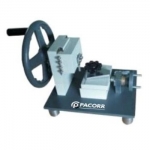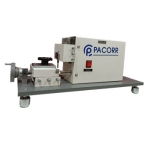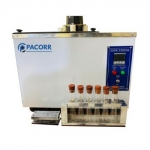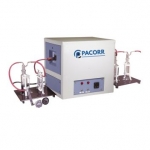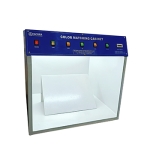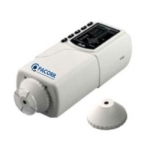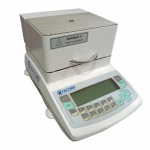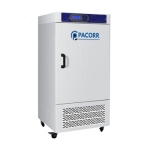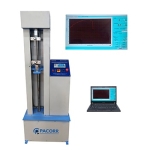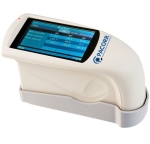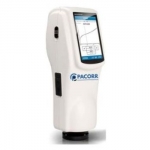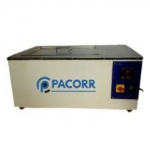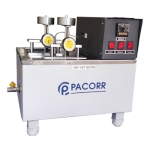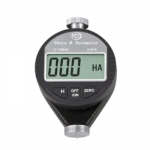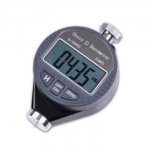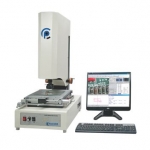Plastic Granules Testing Instruments
Plastic Granules Testing Instruments manufacturers and suppliers offer a plethora of highly precise devices that can be used for testing the quality and properties of plastic granules that are further used for making plastic products. The plastic granules are the basic materials that are used for making various plastic products. The quality of the granules is greatly responsible for the quality of the end plastic products hence the manufacturers of the plastics must ensure that they test the quality of their plastic granules before commencing manufacturing process. This can easily be done with the help of Laboratory Plastic Granules Testing Instruments.
The expression "plastics" incorporates materials made out of different components, for example, carbon, hydrogen, oxygen, nitrogen, chlorine, and sulfur. Plastics ordinarily have high sub-atomic weight, which means every particle can have a huge number of molecules bound together. Normally happening materials, for example, wood, horn and rosin, are additionally made out of particles of high atomic weight. The produced or engineered plastics are frequently intended to imitate the properties of normal materials. Plastics, additionally called polymers, are created by the change of characteristic items or by the combination from essential synthetic substances by and large originating from oil, gaseous petrol, or coal.
Most plastics depend on the carbon molecule. Silicones, which depend on the silicon particle, are a special case. The carbon iota can connection to different particles with up to four substance bonds. At the point when the entirety of the bonds are to other carbon iotas, precious stones or graphite or carbon dark residue may result. For plastics the carbon iotas are likewise associated with the previously mentioned hydrogen, oxygen, nitrogen, chlorine, or sulfur. At the point when the associations of iotas bring about long chains, similar to pearls on a pearl necklace, the polymer is known as a thermoplastic. Thermoplastics are described by being meltable. The thermoplastics all have rehash units, the littlest part of the chain that is indistinguishable. We call these recurrent units unit cells. By far most of plastics, about 92%, are thermoplastics1.
The gatherings of molecules that are utilized to make unit cells are called monomers. For certain plastics, for example, polyethylene, the recurrent unit can be only one carbon iota and two hydrogen iotas. For different plastics, for example, nylons, the recurrent unit can include at least 38 molecules. At the point when we join monomers, we produce polymers or plastics. Crude materials structure monomers that can be or are utilized to frame unit cells. Monomers are utilized structure polymers or plastics. When the association of the carbon molecules structures of two and three-dimensional organizations rather than one-measurement chains, the polymer will be a thermoset plastic. Thermoset plastics are described by not being able to melt. Thermoset plastics, for example, epoxy cements or unsaturated polyester vessel bodies and baths or the phenolic cements used to make compressed wood, are made by the client blending two synthetics and quickly utilizing the combination before the plastic "sets up" or fixes.
Pacorr offers a wide variety of Plastic Granules Testing Instruments that are used in plastic industries to test the quality of the plastic granule. The instruments that are offered by Pacorr use the advanced technologies that can provide the best accuracy of testing data and ensure better quality control. The instruments have a rigid make and longer service life which makes them usable in extreme working conditions as well.
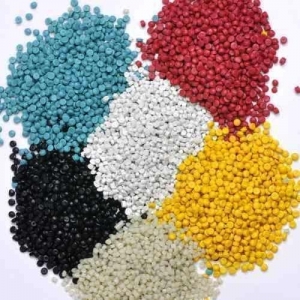

Mr. Anuj Jakhodia (Director)
Safe Closures LLP
I purchased a torque tester for my company which is working just perfectly fine since last 6 months. Also, their comprehensive after sales service makes them stand out from others. I will recommend Pacorr for best quality products and excellent customer service.

Rajpal Dhiman
Tasmay Unicoats Private Limited
Pacorr has offered us the best range of chemicals and coating testing instruments that have made it extremely easy to take care of our product quality. Thanks Pacorr Testing Instruments.

Bhaskar Srivastava
Dipty Lal Judge Mal Pvt Ltd
I recently ordered some plastic molding testing instruments from Pacorr and I must say I am amazed by the quality of their devices and the support we got from their team was remarkable. I totally recommend Pacorr instruments for unmatched quality assurance.

Nipun Jain
Fast Pack India
The extensive range of testing instruments they have to offer, satisfied all my quality testing needs. The most impressive things, I feel, is the comprehensive after-sales support that I received from them.

Danish
Fair Exports Pvt. Ltd.
Thanks to Pacorr Testing instruments, we have all the required quality testing instruments that have helped us to ensure the best quality delivered to our clients.

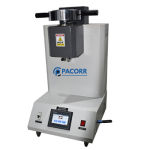
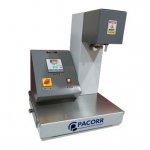
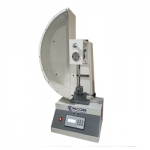
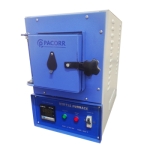
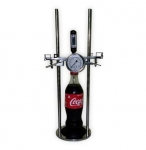
.jpg)
